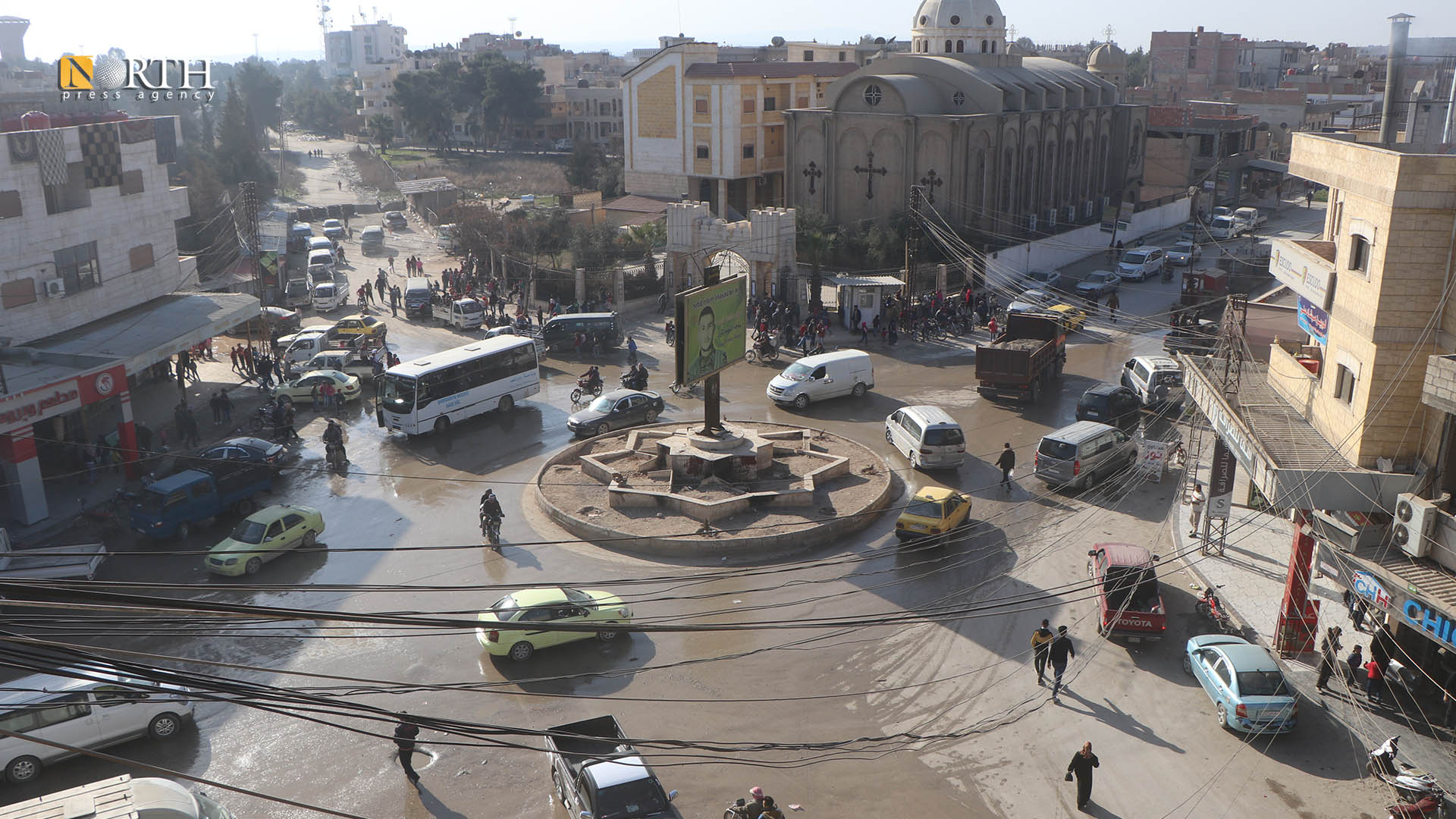QAMISHLI, Syria (North Press) – Arab tribal figures in the Jazira area, northeast Syria, say that the cities of Hasakah and Qamishli do not witness disputes between Arab and Kurdish clans, but the communities’ representatives should avoid sedition in order not to worsen the situation.
The two cities have been witnessing security tension between Syrian government forces and the Autonomous Administration’s Internal Security Forces (Asayish) for more than a month following a series of mutual arrests in addition to the targeting of Asayish checkpoints by the pro-government’s National Defense militia.
In the past few days, politicians and officials in the Autonomous Administration of North and East Syria (AANES) accused government officials, foremost among them the governor of Hasakah, of fueling tension between Kurds and Arabs in Jazira.
Coexistence and neighborhood
In the Jazira Region, tribes mainly form the communities that are scattered between the Turkish border in the north and the Iraqi border in the south.
An Arab tribal sheikh believes that the Arab-Kurdish ties were “firm and strong relationships that are built on coexistence, community and intermarriage, and cannot be easily destroyed.”
The sheikh of the Arab Jawala clan Abdulrahman al-Rashid says, “There are people who have an interest in fuelling the clan conflict; however, those clans do not have room for sedition.”
The Tay Tribe is mainly found in the city of Qamishli and the eastern and southern countryside, as it is considered one of the biggest tribe in Jazira and consists of 20 branches.
“There are parties that are trying to drag the Arab clan and tribal people into a major conflict by exploiting their emotions, simplicity, and goodwill,” al-Rashid pointed out.
“For sure there are a few people involved in this issue, but they are prioritizing their interests and do not represent their clans,” he added in a phone call to North Press.
Governor called for demonstrations
On Saturday, the regime governor of Hasakah Ghassan Khalil called on pro-government Arab tribal heads and sheikhs to participate a meeting in which security apparatus officials and the police chief in Hasakah took part.
Khalil was one of the officers who supervised repression operations in the Syrian war, according to a report by Human Rights Watch in 2011.
A tribal source who participated in the meeting, revealed to North Press, provided that he remained unnamed, that Khalil asked them to demonstrate against the Syrian Democratic Forces (SDF), he called “Kurdish forces.”
The SDF, founded in October 2015, includes Kurdish, Arab, Syriac, and other military entities, which are supported by the Global Coalition.
Arab fighters make up more than half of the SDF, according to a report by Pentagon in 2017.
The city of Hasakah witnessed clashes which killed a government soldier and wounded three others on Sunday, when the Asayish and government forces engaged in mutual shooting.
Official media close to the Damascus government, and even in the opposition, broadcasted the event as an Arab tribal uprising against the SDF and AANES.
Meanwhile, in a statement on Sunday, Asayish General Command held the government officials in Hasakah responsible for the recent tensions in the area.
In the statement, Asayish mentioned that the government-backed National Defense groups tried to “sow sedition between the communities in the area.”
No social discord
“Neither Arab tribes nor Kurdish tribes and parties are a part of the current tension in Hasakah and Qamishli,” lawyer and clan head in Qamishli Hassan Assaf stated.
“In Jazira Region, there is no discord between communities of the Syrian society, as the recent events are a conflict between AANES and the Syrian government,” he said in a phone call with North Press.
Assaf called on officials of the two parties to “avoid the bloodbath and sedition in a time when Turkey is seizing parts of the Syrian territory.”
He added that “any armed conflict will lead to a disaster in the area, while Turkey and other countries that are working to fulfill their political agendas will make use of this.”
“It is the duty of representatives of the communities in Jazira to interfere and mediate to halt the tension before it becomes even worse,” he pointed out.

